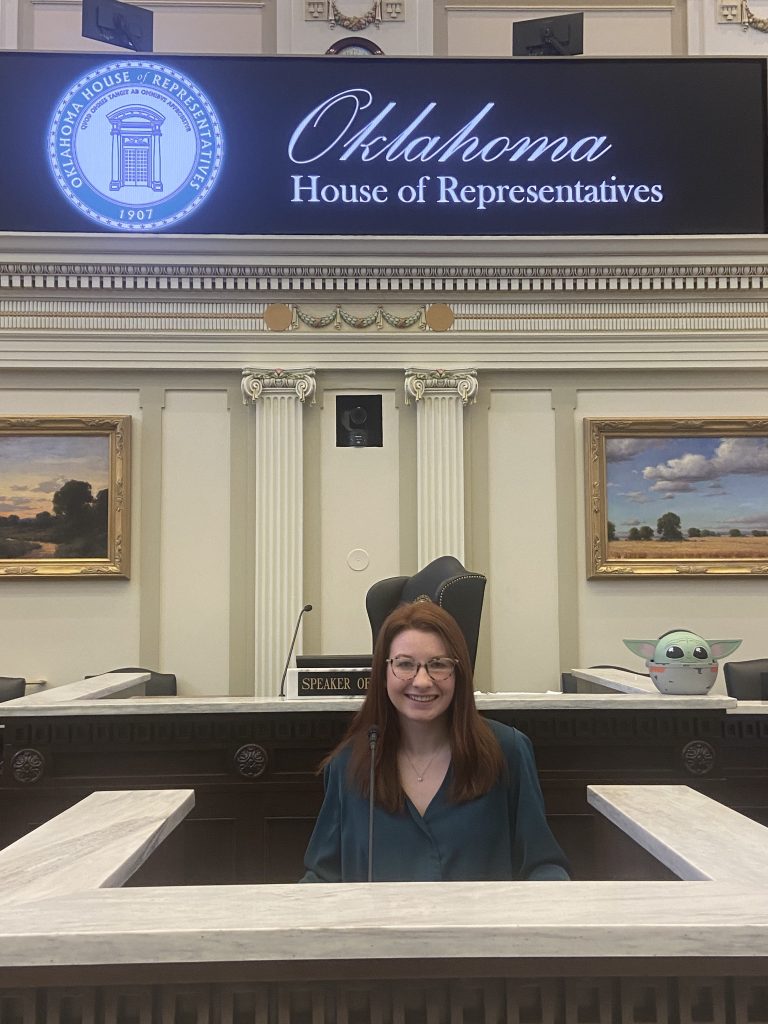By Journalist Trever Friesen (OSU).

Representative Kaitlyn Wadley (OU) moments after passing her bill (OU-529) in the House of Representatives.
Heated debate continues to lead to a well-run chamber.
On Saturday morning, April 1st, Representative Kaitlyn Wadley (OU) presented a bill in the House of Representatives “OU-529”, “an act relating to public safety”.
The 14-page bill, a modified bill passed in the state of Colorado in 2020, aiming in increasing overall fun violence protection includes 14 different subsections in the “NEW LAW” section three.
This “epidemic”, quotes author Wadley, remembers “being taught school shooter drills growing up, taught [to be] sitting ducks”. Reminiscing about the inability that “schools and homes should be symbols of safety not where blood has been shed because gun safety is politicized”.
Yet, issues on length swiftly became a paramount center for argumentation. Representative Alex Edmundson felt the desire to put the bill through, yet possessed a passionate gripe against the inclusion of cops in totality within the bill. Due to the sheer size and complexity of the bill’s contents, Edmundson “did not know how to change it”, and felt that the designated “Yellow Calendar” did not leave enough “time to fully dissect the bill” even with extended questions and debate.
Issues continued to arise between the bill’s original passing in Colorado throughout all stages of deliberation. As conflict always arises between “copied” legislation from one state to another, this bill rendered no exception.
Once again relatively in a stance of favor towards the bill, this time it was the pure “copy-pasting” of the bill that left Representative Nathan Wilson (OBU) fearing for the bill’s potential “poor execution in how it’s done”.
Understandably, in the state of Oklahoma and that of the United States as a whole, gun violence remains an incredibly concerning and pressing matter. Author Wadley backed her claim immediately in exposition, quoting “125 mass shootings have occurred this year since January 1st”.
While representatives continued to believe more needs to be done, many were against motives in doing so in accordance with this specific bill. Representative Leandra Lepp (OBU) expressed her concerns with the “violation of people’s privacy” is not the way to solve this need for the “provision of safety” as a whole.
Through heated debate and deliberation the bill eventually passed in a vote of 32 in the affirmative and 15 in the negative.
The bill served as a stepping stone for increased involvement all around the house. Those who were open to caucussing and sharing such varied opinions on such a controversial topic found themselves enthralled in the process from start to finish, a true representation for well-run governmental processes.
